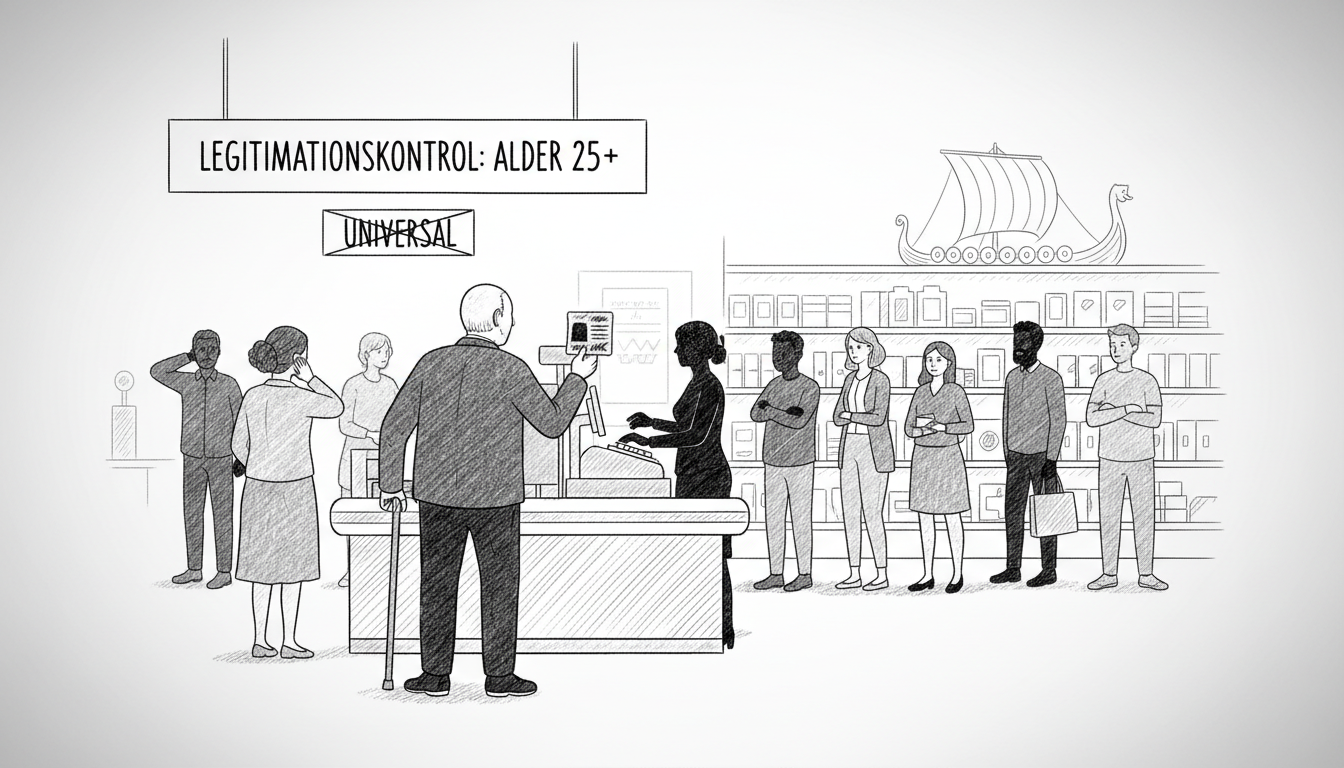A Rema 1000 supermarket in Middelfart, Denmark has reversed its controversial identification policy following customer complaints. The store initially required all customers purchasing tobacco or alcohol to show ID regardless of age. Store management implemented the rule to protect cashiers from potential fines and reduce workplace pressure.
Michael Mundeling, who operates the Middelfart location, introduced the policy earlier this month. He wanted to prevent situations where employees might forget to check identification. The store announced the policy reversal on its Facebook page over the weekend.
In their social media statement, the store management apologized to customers. They acknowledged that requiring universal ID checks created unnecessary challenges for shoppers. The store now returns to standard Danish practice, only requesting ID from customers who appear under 25 years old.
This situation highlights the delicate balance Danish retailers face between regulatory compliance and customer service. Denmark maintains strict age verification laws for alcohol and tobacco sales. Stores risk substantial fines for violations, creating significant pressure on retail staff.
Just last August, another Danish supermarket chain received a 50,000 kroner fine. A young employee forgot to request ID during a snus tobacco purchase. Such incidents create genuine concern among store owners about financial penalties.
The Middelfart case demonstrates how well-intentioned policies can backfire when they inconvenience customers. Danish consumers clearly expect age verification to follow reasonable standards rather than universal checks. The quick reversal shows how responsive businesses must be to customer feedback in Denmark's competitive grocery market.
This incident reflects broader retail challenges across the Nordic region. Stores must navigate strict regulations while maintaining positive customer relationships. The Danish approach typically favors targeted age verification rather than blanket policies.
What does this mean for international visitors to Denmark? Understanding local age verification practices helps tourists navigate purchases smoothly. Most Danish stores only check ID when customers appear young, making shopping more efficient for obvious adults.
The policy reversal in Middelfart serves as a reminder that customer satisfaction often drives business decisions more than theoretical risk management. Even when stores face genuine regulatory concerns, they must balance these against practical customer experience considerations.

